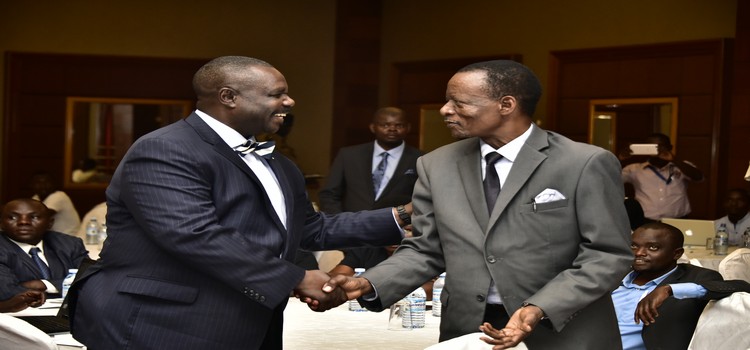
The Deputy Speaker of Parliament, Jacob Oulanyah has called for dialogue as a way forward in solving stalemates in the political arena.
Oulanyah said that learning from the past and planning for the future will promote the survival of the present which he says is key in setting standards that can propel the country’s institutions forward.
“I have spoken to people but I do it privately. If something is wrong, I find an opportunity to share with you individually. We can all persuade each other and give wise counsel privately,” said Oulanyah.
He was speaking at the 20th anniversary of the Uganda Human Rights Commission and commemoration of the Constitution Day at the Sheraton Hotel on Friday, 05 November 2018. The celebration was based on the theme Sovereignty of the People; Duties and Responsibilities of Stakeholders.
The Deputy Speaker said that the Constitution of Uganda provided a framework and created institutions that arranged how powers would be shared and controlled.
He also noted that the country’s major institutions had to continue with concerted efforts to best serve the interests of the citizens saying “… Parliament, the Executive and the Judiciary must act as one to save us, and we are all part of the equation”.
Oulanyah explained the UBUNTU concept which he said promotes brotherhood and sisterhood adding that positive energy ought to be pushed to fix gaps for the benefit of the country.
He also called on the meeting to embrace the National Prayer Breakfast held annually on 8th of October aimed at praying for the country to cast aside indifferences and embrace a common goal.
“The Kenya Prayer Breakfast in May this year was used to put the country together. Leaders who had been fighting every day got an opportunity to shake hands and embrace each other. If Kenya can do it, why can’t Uganda do it, ” Oulanyah asked.
The Chairperson of the Uganda Human Rights Commission, Meddie Kaggwa called for translation of the Constitution into local languages and noted that an initiative to have an integrated civic education program in the country was in the offing.
“You cannot claim a right you do not know. If the Constitution is translated into local languages, people can read it for themselves and be in position to demand for accountability,” Kaggwa said.
